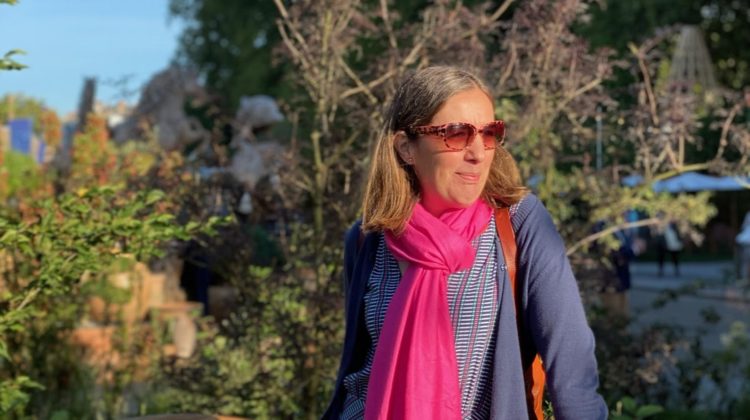
Today sees the start of Mental Health Awareness Week, and this year’s theme is loneliness. A good few Folk Features’ favourites offer their positive messages
Hannah Powell is the Communications & HR Director of Perrywood Garden Centre & Nurseries, based in Suffolk and Essex:
‘I was at my loneliest when I was suffering from burnout and functional neurological disorder (FND) in London. Overnight my life completely changed. I was stuck in my flat, not working, and waited months for my diagnosis. No one knew what FND was, and I felt very isolated. Nature filled a void and helped me in my recovery. More than a decade on and FND is still not well known, even though you are more likely to be diagnosed with it than Parkinson’s or MS at a neurology clinic. I’ve recently published my memoir The Cactus Surgeon: Using Nature to Fix A Faulty Brain, to help others going through that lonely diagnosis journey. It gives them HOPE and a more positive mindset – when they need it most. I’ve found it to be very powerful to tell my story, because it’s encouraged others to come forward and tell someone they are struggling. It’s never too early to ask for help.’
Chris Reeve is the Managing Director of Reeve Social Media:
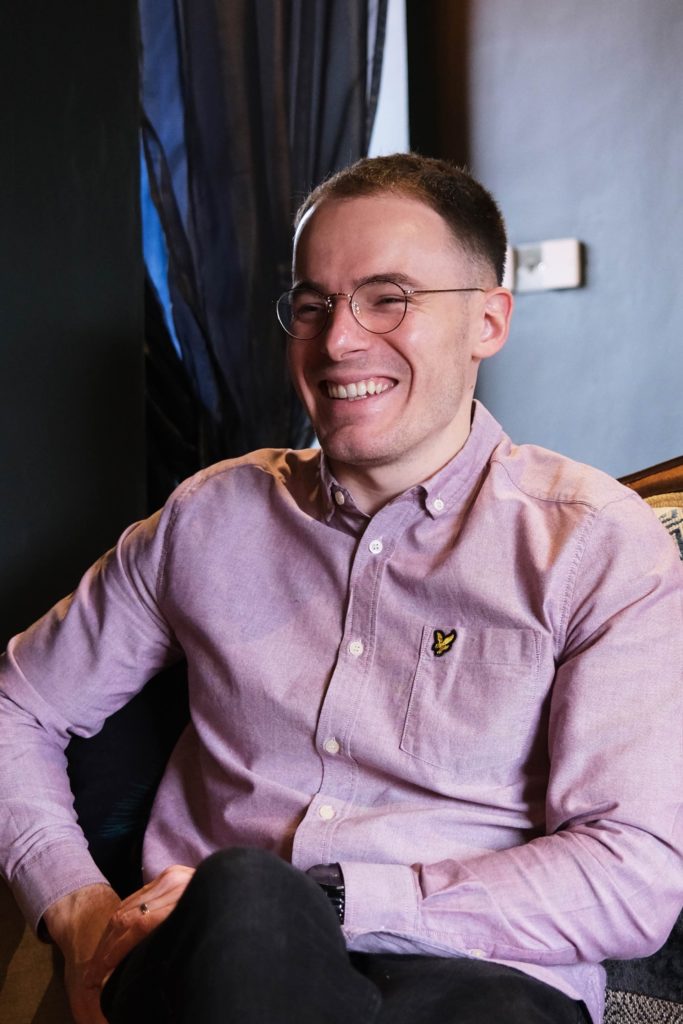
‘My number one tip to instantly combat loneliness is to start an Instagram live with your followers. Straight away you will be broadcast into everyone’s phones, and you can literally start a conversation with so many people simultaneously – inviting them to join in live and to chat with them.’
Steph Stanhope is a registered social worker – and founder of Suffolk-based Creating Caring Connections, which promotes wellbeing through connection:
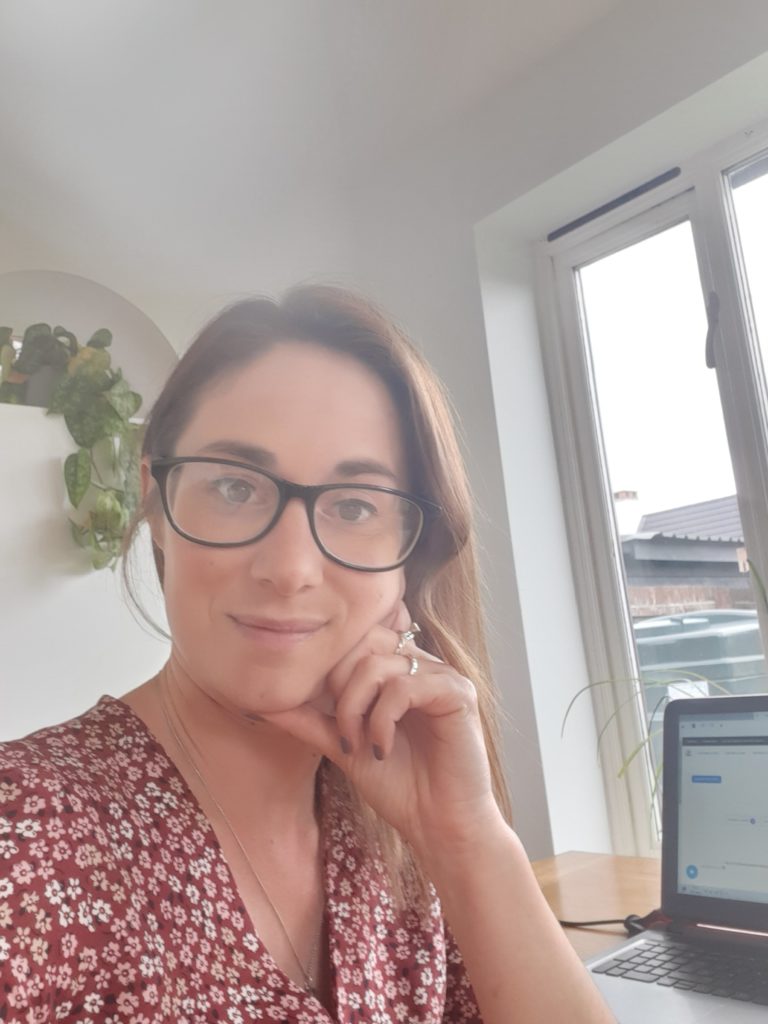
‘Loneliness can sneak up on us and leave us feeling lost. Connections help us to feel grounded, to feel valued. Take time to connect with yourself to re-discover what makes you you. Reach out and connect with other people, a simple gesture like a smile, a message, a phone call. Spend time outside or by an open window, connect with nature. Know that we are all here, in this world together, we are all part of something bigger, are all connected.’
Michelle Gant is the Director of The Engaging People Company:
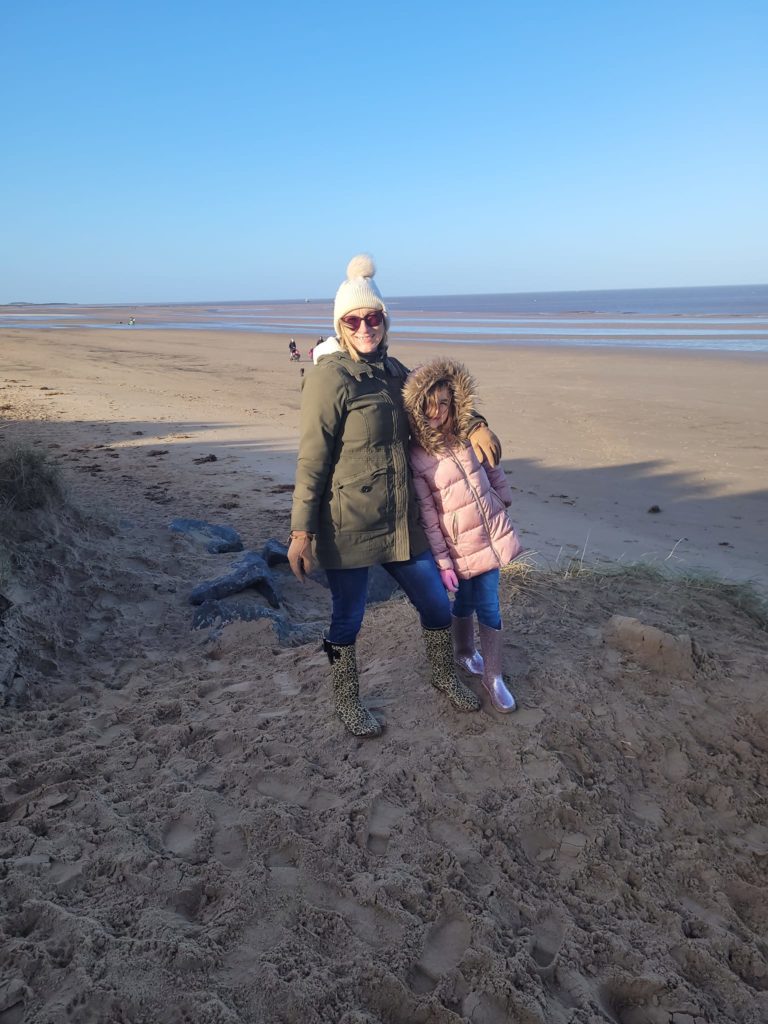
‘Connection is fundamental to our wellbeing. And we have to be deliberate about finding opportunities to connect – especially perhaps when we are not coming together physically regularly. When we connect, catch-up, reach out, we feel less alone. And that’s definitely a good thing.’
Tom Oxley is the Workplace Director of Bamboo Mental Health:
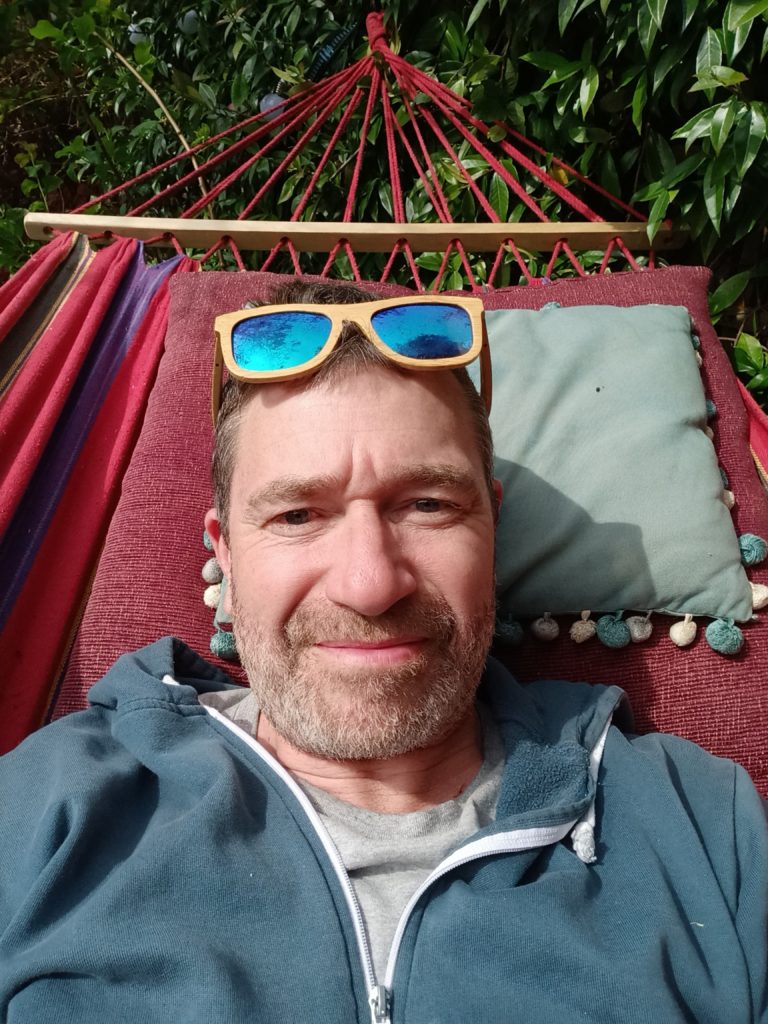
‘There’s a vast industry telling us how we need to change ourselves to ‘be well.’ But what if our feelings and our bodies and pain are trying to tell us something? What if we listened to these biological messages? What if we paused before hurtling towards the next wellbeing technique and asked, “Why do I feel like this?” The answer if often found inside. So, what if workplaces listened to their people with this same kind enquiry? Loneliness feels quite a shameful experience. Perhaps we feel we’re somehow not good enough or popular – that old childhood feeling doesn’t quite go away. At work this can show up in multiple ways – isolation, disconnection, low collaboration or a poor team experience – and these are bad for business. Leaders feel this stuff too. We just don’t talk about it. It’s a taboo that needs breaking by employers.’
Lisa Redford is a singer-songwriter:
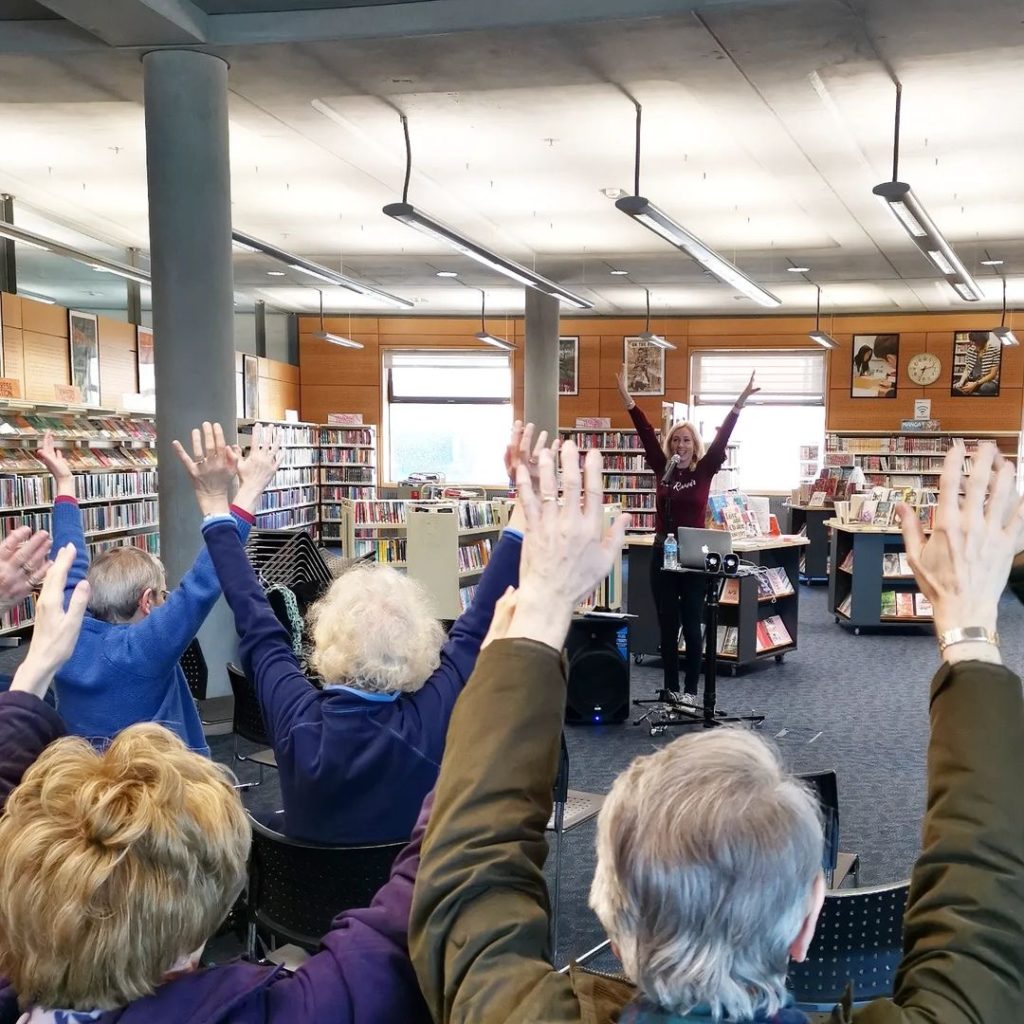
‘Taking care of our own mental health and those around us is vital; Mental Health Awareness week plays a really important part in raising more awareness of how we can help others, in whatever small way we can. I take steps to manage my own mental health with various practical and creative activities and this year its been so rewarding to run free community singing sessions in Norwich libraries. To hear people tell me that the hour of singing together has helped them feel less isolated and lonely has meant such a lot. I’m also involved in Norfolk Creativity and Well-being week this month – with more music and singing workshops – and feel very passionately about how the power of music and other creative pursuits can positively impact our mental health by boosting our mood and reducing feelings of loneliness.’
Vicki Harris, founder of From Suffolk With Love:
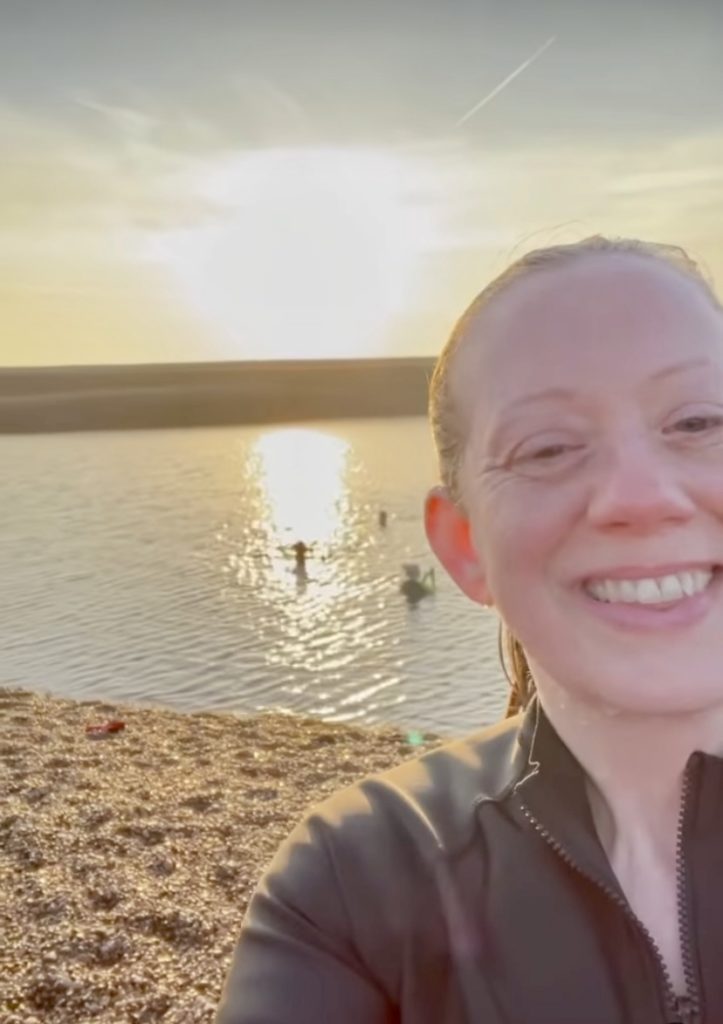
‘The thing that helps me with my mental health is getting up early for a sunrise swim. When you’re in the cold water you don’t think about any of your stresses and the sunrise is always worth getting out of bed for! Finding a group to swim with has been a great way to meet and connect with some lovely like-minded people. I recommend looking up your local Bluetits group, in land or by the sea!’
Pippa Lain-Smith is the Managing Director of Plain Speaking PR:
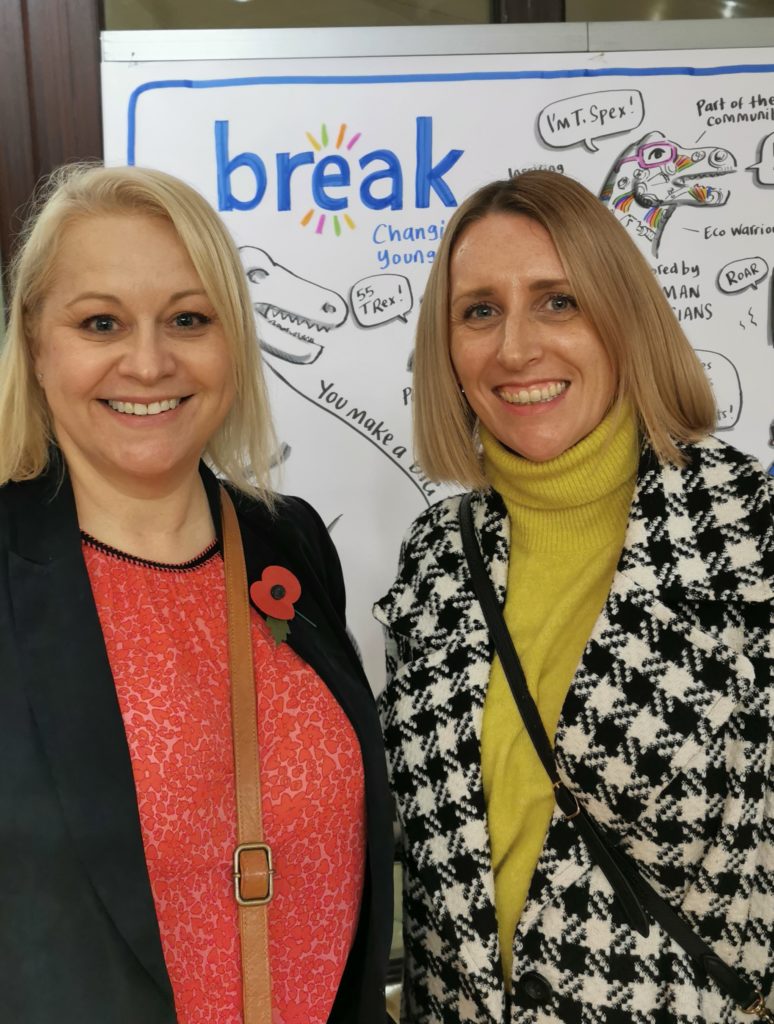
‘As someone who has experienced fairly poor mental health at various stages of my life, I would always encourage people to be open and find someone to talk to if they’re struggling. There is absolutely no shame in contacting an organisation such as Mind or reaching out to a counsellor. I’m also going through the perimenopause which can bring its own challenges, including low mood and anxiety. Exercise is a great mood booster, so I’m trying to be more active in my working approach – following the great advice of Floyd from Flomotion Studio – and ensuring I’m not sitting down all day. I feel very lucky to have Hannah in my life: a wonderful colleague but also a great friend. As a team, we make sure we take time to chat about all kinds of things and will always try to take the pressure off each other if we can tell that one of us is having a tough day.’
Hannah Freeman is the Senior Account Director at Plain Speaking PR:
‘Mental health is something we talk about at Plain Speaking PR frankly. I can go to Pippa with pretty much anything, knowing she will listen, empathetically, and understand. Whether my worry or concern is work-related or not, I know I can be very open, and that means a lot. In terms of what I do to boost my mood, I go to weekly boxing sessions at Ultimate Boxing in Beccles. Not only is it great for tension release, but we’re constantly laughing as we attempt to box or do burpees! But I think it’s quality family time that really boosts my mood. Enjoying a day when everyone’s relaxed and having fun together, maybe swimming at Beccles Lido, den-building at BeWILDerwood or screaming on rides at Great Yarmouth Pleasure Beach. Let’s be real here, these days won’t be without their tantrums and moments of chaos, but quality family time really does boost my mental health. And I’m fortunate to work for a business that gets the importance of that. Being organised and planning also really helps me to prioritise my mental health. Making time for me sometimes slips when there are deadlines to meet and life admin to do. So I bought a ‘Stop the Flitter’ diary this year, created by Norfolk coach, Sam James. Every week it reminds me to jot down what I’m looking forward to – the ‘good bits’. And to list ways I will nourish myself. So simple but so effective, and I have noticed feeling more on top of things since using it.’
Floyd Sayers is the of Flomotion Studio in Norwich:
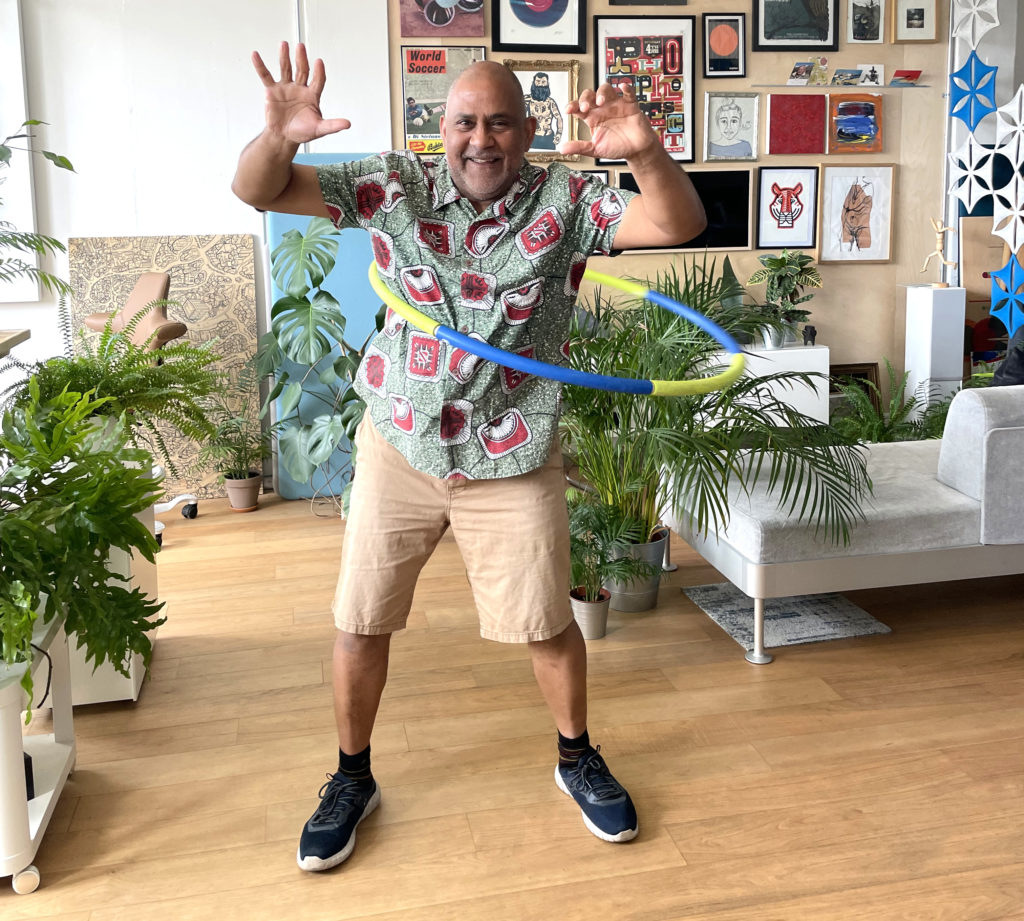
‘My favourite quote can apply to so many things in our lives concerning our habits and changing our behaviour: We are what we repeatedly do, so when it comes to improved health and wellbeing in the workplace – more movement, stretching, exercise, breathing, hydration happens through simple, easy to do and repetitive actions. That’s our key message!’
David Robertson is the Managing Director of Jader Ltd – and is a mental health awareness advocate:

‘To help with anyone’s mental health – including your own – I recommend several approaches; Be kind and helpful to those that do not mind a conversation. Some people do not like conversation. This can be written and using social media responsibly; It is not about communicating advice; it is about teaching and learning both one way and reciprocated. It is not about “getting one over on someone”, that is disrespectful; There are no real rules in communication and negotiation, although these go wrong if diplomacy is not observed. So, the ONE thing I get from this is “communication”. Two way is best, although information and message broadcast (Like Folk Feature’s posts) are very functional. After all that, where did “talking therapy come from”? Recovery College by the Norfolk & Suffolk NHS Foundation Trust taught me that.’
Tina is the founding member of 4transform, an innovative project encouraging Domestic Abuse victims to explore their creativity:
I have just started a three-week course with The King’s Fund on the topic of Compassionate Leadership and came across this quote from Theodore Roosevelt in the training: “No one cares how much you know, until they know how much you care.” This resonates with another person I greatly admire, Maya Angelou: “I’ve learned that people will forget what you said, people will forget what you did, but people will never forget how you made them feel.” I think these fit rather nicely with 4Transform’s ethos, and our wish for compassionate leaders and the need for Trauma-informed Care. I like this too: “We always have a choice,” Pema Chödrön teaches: “We can let the circumstances of our lives harden us and make us increasingly resentful and afraid — or we can let them soften us and make us kinder.” Here Pema provides the tools to deal with the difficulties that life throws our way so we can: wholeheartedly accept ourselves and others, complete with imperfections; stay in the present moment by seeing through strategies that cause us to resist life as it is; tap into our natural reservoirs of humour, flexibility, courage, and wisdom; courageously move toward what makes us feel insecure in a way that opens our heart and connects us with others.” And always remember it is not selfish to put yourself first and practise self-compassion. I love to connect with my environment. Yesterday, it took a while, experiencing the peace and beauty of nature, to calm my nervous system.’









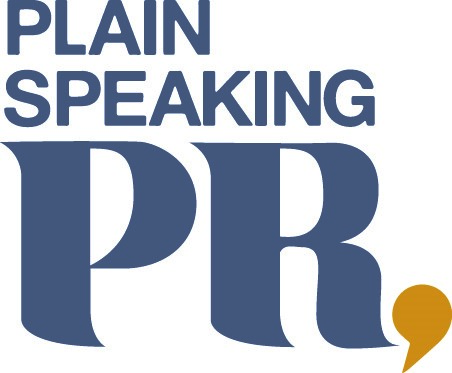
Leave a Reply